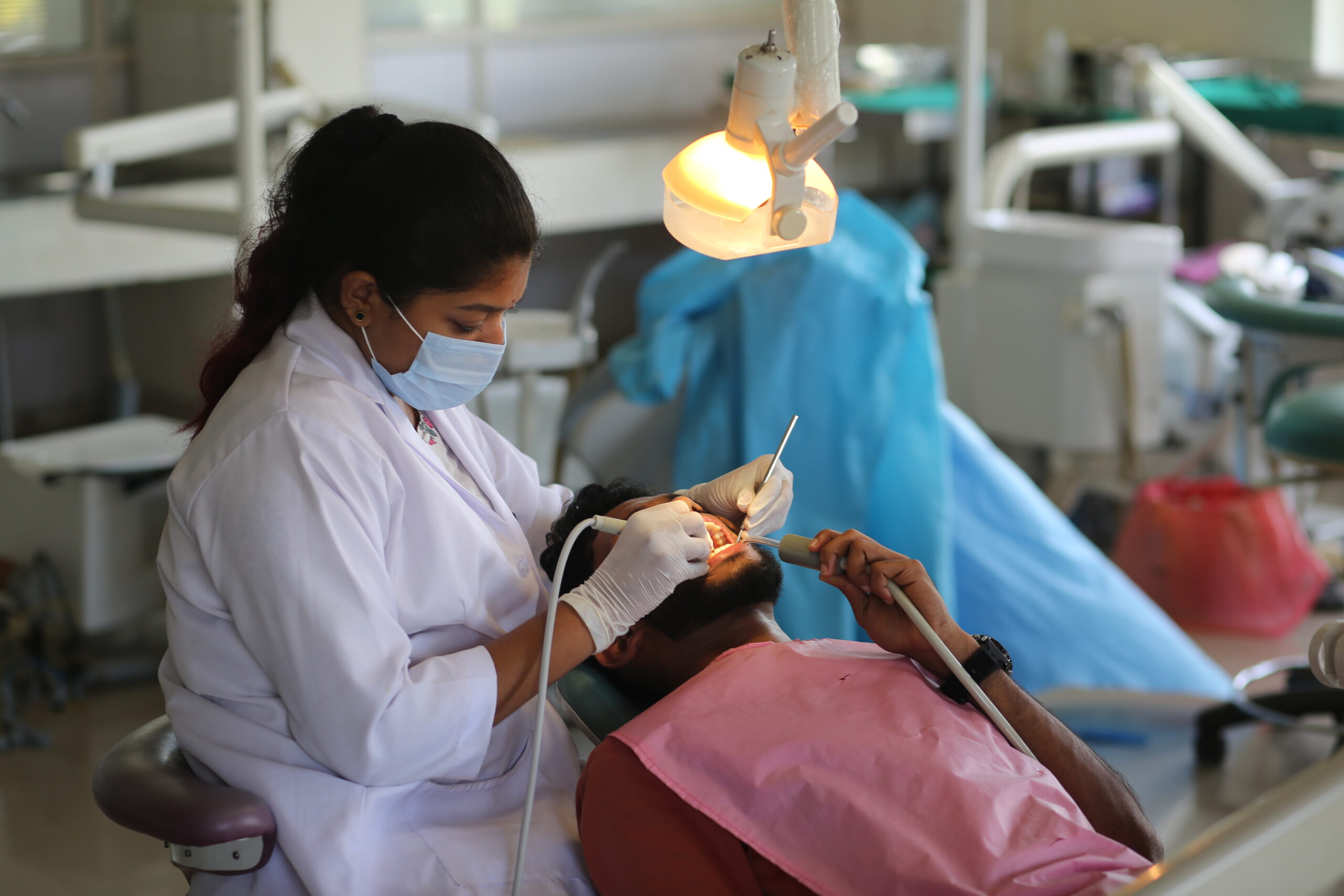

Department of pediatrics & preventive dentistry is equipped with 21 chairs, minor surgical area with conscious sedation unit. Parent, counseling, room, play area, x-ray room with advanced RVG facilities, Departmental Library.
Department is headed by Dr. Shoba Kuriakose MDS, Experienced and senior faculty members headed by eminent Pedodontics Dr. Shoba Kuriakose MDS, former JDME is there to train the students and to develop an attitude. 18 adopt ethical principles in all aspects of Pedodontics practices. Early diagnosis of dental diseases help us prevent the progression of diseases minimize patient discomfort and the cost involved. Students are trained in behavior management and rendering dental for patients with special health care needs. We also provide primary comprehensive, preventive and therapeutic oral health care for infants and children through adolescents

Pedodontics and preventive dentistry, while sometimes used interchangeably, focus on different yet complementary aspects of oral health, particularly for children
Pedodontics (Pediatric Dentistry): This specialty is dedicated to the oral health of children, from infancy through adolescence. Pedodontists are like dentists specifically trained to care for young patients. They understand the unique challenges and needs of developing teeth and jaws throughout childhood and adolescence.
Preventive Dentistry: This broader field focuses on preventing oral health problems in people of all ages, but it's especially crucial for children as their oral health habits are forming.
The Intersection:
Pedodontics heavily emphasizes preventive dentistry. By establishing good oral hygiene habits early on and addressing potential problems promptly, pedodontists can set children on the path to a lifetime of healthy smiles.
Benefits of Pedodontics and Preventive Dentistry:
A career in Pedodontics and Preventive Dentistry offers a unique blend of nurturing young patients, fostering a love for oral health, and witnessing the lifelong benefits of preventive care.
High Demand and Rewarding Impact: With a growing focus on preventive healthcare and increasing awareness of children's oral health, pediatric dentists are in high demand. You'll have the opportunity to make a significant impact on children's lives by shaping their oral health habits and preventing future problems.
Fostering Positive Dental Experiences: Your expertise goes beyond clinical skills. Creating a welcoming and positive environment for young patients is crucial. You'll develop techniques to manage anxieties, make dental visits fun, and build trust with children, setting them on the path to a lifetime of good oral health.
Diverse Practice Options: The field offers flexibility. You can choose a private practice catering to children, a hospital setting, or even a public health environment, focusing on preventive care for underserved communities.
Continuous Learning and Innovation: Preventive dentistry is constantly evolving, with advancements in dental materials, technologies, and behavior management techniques. You'll have opportunities to stay updated and integrate these advancements into your practice, ensuring the best possible care for your young patients.
Education and Research Opportunities: You can contribute to the future of oral health by educating parents on children's dental care and participating in research initiatives focused on preventive dentistry in children.




Sri Sankara
Typically replies within an hour
Can I know more about the courses?
WhatsApp Us
🟢 Online | Privacy policy
WhatsApp us
